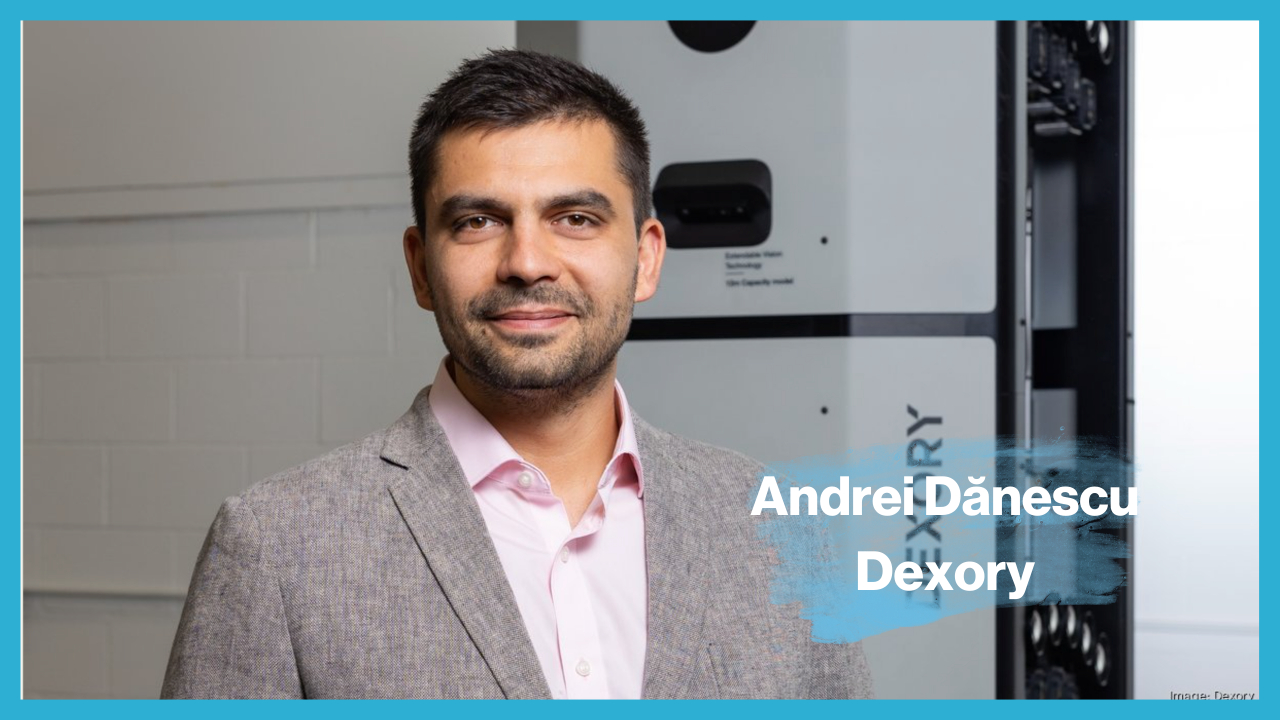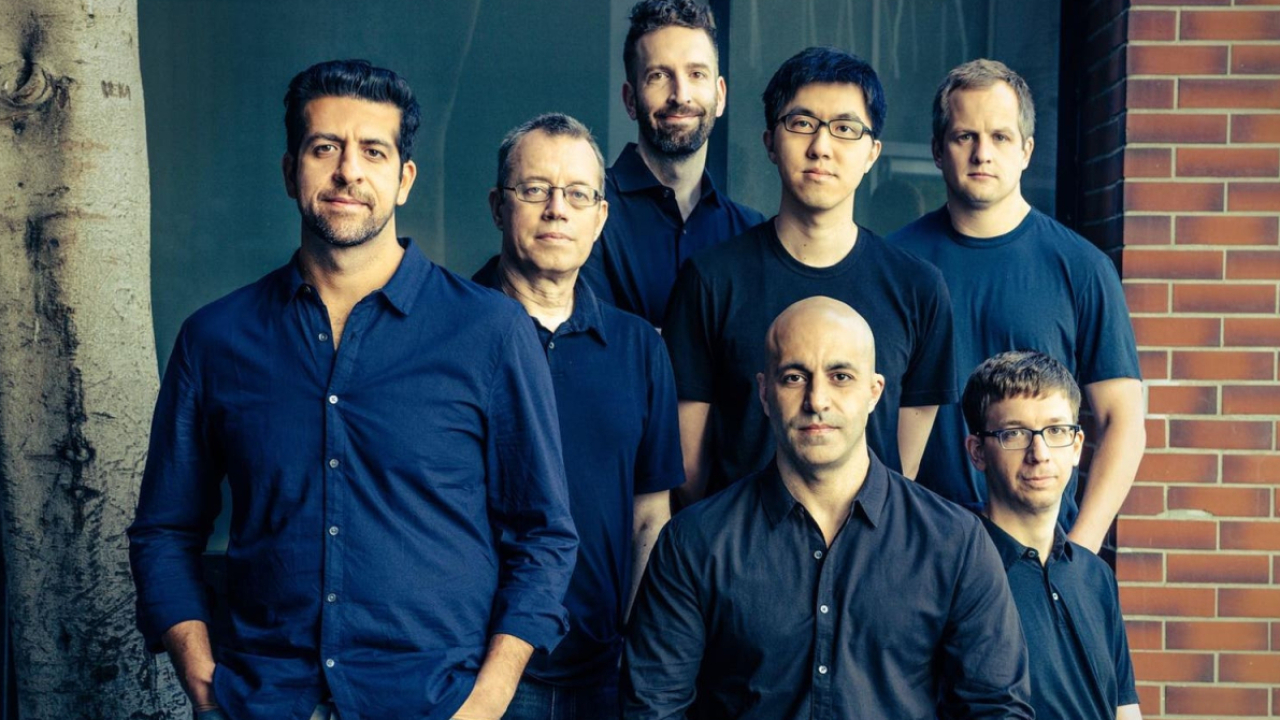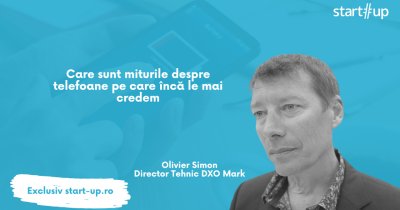The Work in Progress podcast is a Green Start-Up and start-up.ro production focused on the investors and founders that change the startup ecosystem.
We've centered the Work in Progress podcast around two major themes, and were going to split the episodes into the Blue podcast – for start-up.ro – where we'll discuss with venture capital managers, angel investors, startup founders from Romania, Europe and around the world about their role in the ecosystem, business, trends, and the Green podcast – for Green Start-Up – where we will put a sustainability layer on our discussions and we'll approach topics relevant for impact founders as well as impact investors.
Ondrej Bartos is the co-founder and general partner of Czech venture capital firm Credo Ventures, one of the largest VCs active in Central and Eastern Europe.
A former entrepreneur turned investor, Ondrej entered his first successful business venture when he was still in college, in the late 90s.
Several companies later with activities in event management, consulting and IT, Ondrej realized that entrepreneurship isn't his game, so he turned consultant and angel investor.
He is currently managing the early stage venture capital firm Credo Ventures, which he co-founded in 2010. Credo has built a portfolio of over 60 companies in countries such as Poland, the Czech Republic, Hungary, Romania, Croatia, Bulgaria, Moldova, Serbia, Slovenia, and has a track record of exiting more than a dozen companies through an IPO or sale to companies such as Oracle, Cisco, or Miro.
Ondrej and his team at Credo Ventures also supported two unicorns emerging from the region, RPA leader from Romania, UiPath, and global customer-centric product management platform from the Czech Republic, Productboard.
Ondrej was our guest for the premiere episode of the Work in Progress podcast and we talked in depth with his about his shift in career that led him to cofounding on the most appreciated venture capital firms in Europe, how his experience as an entrepreneur helps him relate to the founders, as an investor, his process when evaluating startups and the fear of missing out among investors.
Listen to our discussion on Spotify and read some highlights from our talk with Ondrej below.
"I always was better in guiding other entrepreneurs"
Ondrej Bartos: I am currently one of the partners at Credo Ventures, as you said. I invest in early stage startups and, at the same time, I am the father of two two kids, I live in Prague with my family.
Before I was an investor, I first started as an entrepreneur. I cofounded my first company when I was still in college.
I was never a greatly successful entrepreneur, but I did start a bunch of companies back in the late 90s and early 2000, including an internet company in 1998 , in the ”good old days”, and it was also the first company that we managed to exit, to sell to a strategic buyer. I guess that was my first mediocre small success.
Probably the most important thing that I learned during my entrepreneur or founder years was that I wasn't suited to build amazing companies. Every time the companies that I was involved with grew up to like 15 or 20 people, it started not to feel right.
You know, you have to start playing a little bit of sort of internal politics and you have to motivate people and build teams, and I just figured that was not really for me.
I was not a good manager, I never had an amazing world changing idea, so most of the companies were service companies or companies in commoditized segments, so that was something I learned.
At the same time, we did manage to get a couple of small exits, so in the early 2000 I actually discovered the world of venture investing and I became a small angel myself, and I did a couple of angel investments.
Back then I didn't know what I was doing. I just knew that I enjoyed talking to other founders, I enjoyed the process of ideation around new business and early businesses, I liked the process of creation, and I felt I always was better in guiding other entrepreneurs, asking the right questions, rather than giving answers.
I did a couple of angel investments, and then I discovered venture capital. I started cooperating with a Polish venture capital firm, and as an advisor to MCI Capital, actually that was the first time I started going to Romania.
I think my first trip to Bucharest was probably sometime in 2004 and 2005, when I went to a conference called Biz Days.
I was on the jury of a startup competition and I fell in love with Romania. I loved the energy and back then, there was a lot of energy, there were not a lot of startups, not a lot of business success, but there was a lot of energy and the people were excited and pumped up.
I continued going to Romania and this eventually led to my first investment in Romania, which was in 2012, in a Romanian startup called Branient, by a young guy called Emi Gal, and it was a successful one. We ended up selling Branient to a larger French based company called Teads.
The second investment was UiPath in 2015.
Romania has a special place in my heart and I certainly hope that there are going to be more successful investments there.
"I genuinely feel for the founders"
Ondrej: Being there at the beginning of businesses, of companies, just helped me at least understand a bit better the struggle, the hustle, the need for resilience, the loneliness of a founder, and then the big responsibility for the team, for the customers, eventually for investors, as well. I believe I can relate to that in founders and not all of the VCs can do that.
So, although I've never built a unicorn, I've never built an amazing company, at least I understand the struggles of the early stages of companies.
I genuinely feel for the founders, and I genuinely like them for what they do, because being a founder, being an entrepreneur, it's just not an easy job.
It's not all party, good times, celebrations, and then ringing the bell at NASDAQ. It's not all that. Most of it is a bit of misery and sadness and impostor syndrome and doubts.
I feel every VC should be a little bit of a psychotherapist as well be the one to talk to in good times and bad times, and maybe especially in bad times.
I feel my entrepreneur days help me in that.
A constant learning path
Ondrej: There are so many. I think everybody who starts venture investing just has to spend a couple of years learning about things. It's a constant learning path.
All of the VCs talk about the importance of people, the personality of the founder. They talk about it, but they don't really know what they are talking about. What are the characteristics of a great founder.
The reason for that is that it's really experience based. You just have to get this feeling for it, I guess, or you have to see hundreds of founders before you get a gist of what it means to be there.
There is a lot of importance in timing of the startup, time to market, whether or not this is the right time to start. Again, this is something that is really intangible. You have to try to feel it, try to have a sense for it, and it's very hard to know before you actually start.
There are a lot of things that we see, learn on the go by doing, and there are a lot of mistakes they ultimately make, and I made a lot of mistakes both when I invested and when I did not invest.
A very colorful job
Ondrej: We certainly do have a process, but it varies. We usually take a couple of weeks. First of all, we have to like the space, we have to like the proposition, we have to like the opportunity.
Actually, with most of the startups we see we say no to immediately when we just don't like the opportunity, or we just don't like the deck, we're no fans of the team.
But then, if we feel like the opportunity is worth exploring, we usually take a couple of weeks to take a look at the space, to compare, talk to the team a couple of times, meet the team, then we spend some time on competition and product and market.
We try to feel whether or not the time is right. We try to get closer to the team and understand whether we believe that is the right team, and then, if all the boxes are checked, and if we feel excitement for the startup, we invest.
That's the process, but then it varies very much. Sometimes we get very excited after the first meeting, sometimes we have a lot of concerns that we first have to double check on or verify. It's a very colorful job and every case is different and I like that about the job.
Unicorn, an arbitrary milestone
Ondrej: I don't think it necessarily needs to be a unicorn. Unicorn is sort of an arbitrary milestone that the market set because it looks good. It's a billion dollar company.
I don't think it necessarily needs to be a unicorn. Also, there are different kinds of unicorns. It's much easier to hit the unicorn status when you raise half a billion dollars for the business, than it is when you raise ten million.
From my perspective it's much better to hit half a unicorn when you only raise 10-20-30 million dollars .
Work in Progress, a good thing
Ondrej: I think work in progress, by definition, it's a good thing. There is nothing without work, you have to work in order to achieve something.
Progress is something that's evolving that's growing, that's advancing, so work in progress I would consider great.
Of course, if I think more and if I add the element of time, work in progress can become sort of a burden when it lasts too long, if you're unable to get it done or get it shipped, get it to the customer, then work in progress might become a burden.
But by definition, I like work in progress.
 Oana Coșman
Oana Coșman














